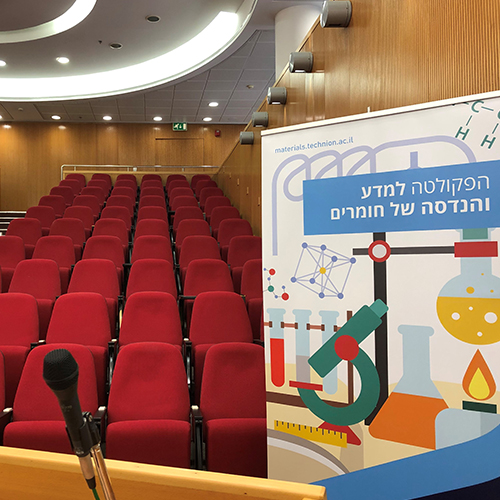
Ms. Kristina Bazaev - M.Sc. Candidate
03/11/2024
David Wang Auditorium, 3rd floor Dalia Meidan Bldg.
14:30
Twist-actuated devices are essential in soft robotics and actuator applications; however, conventional approaches typically require direct torque application. Recent studies present a novel approach to creating controlled twist motion without the need for applied mechanical torque.
In this seminar, I will present my research on a polymeric-based bi-layer tube designed to achieve a twist upon external stimulation, which can be used as a torsional actuator. The bi-layer tube consists of a twisted inner layer and an outer layer, adhered along the interface, resulting in residual stress within the bi-layer and deformation-induced anisotropy. This configuration enables the tube to twist in response to external stimuli.
We propose a model for the electro-mechanical response of induced twist in a bi-layer tube structure using theoretical modeling and numerical simulations. We employ the Gent hyper-elastic model for a Dielectric Elastomer (DE) –based bi-layer tube and examine how varying material and structural parameters, including radii, stiffness, permittivity, and lock-up stretch, affect the twist response under electric excitation. The findings contribute to the theoretical understanding of DE-based actuators and open new pathways for designing responsive materials for advanced engineering applications, including soft rotational robots, artificial muscles, and soft torsional actuators.


